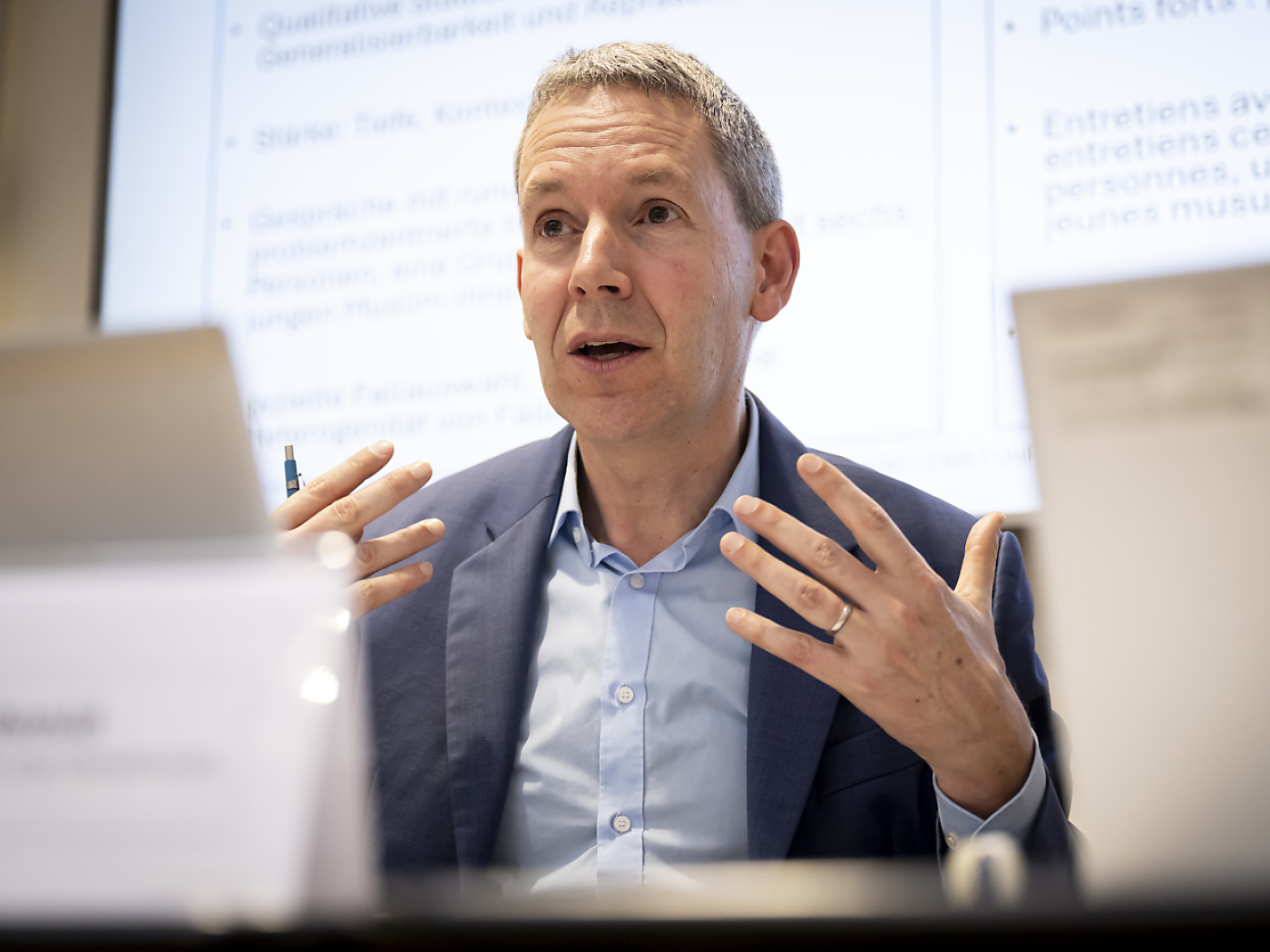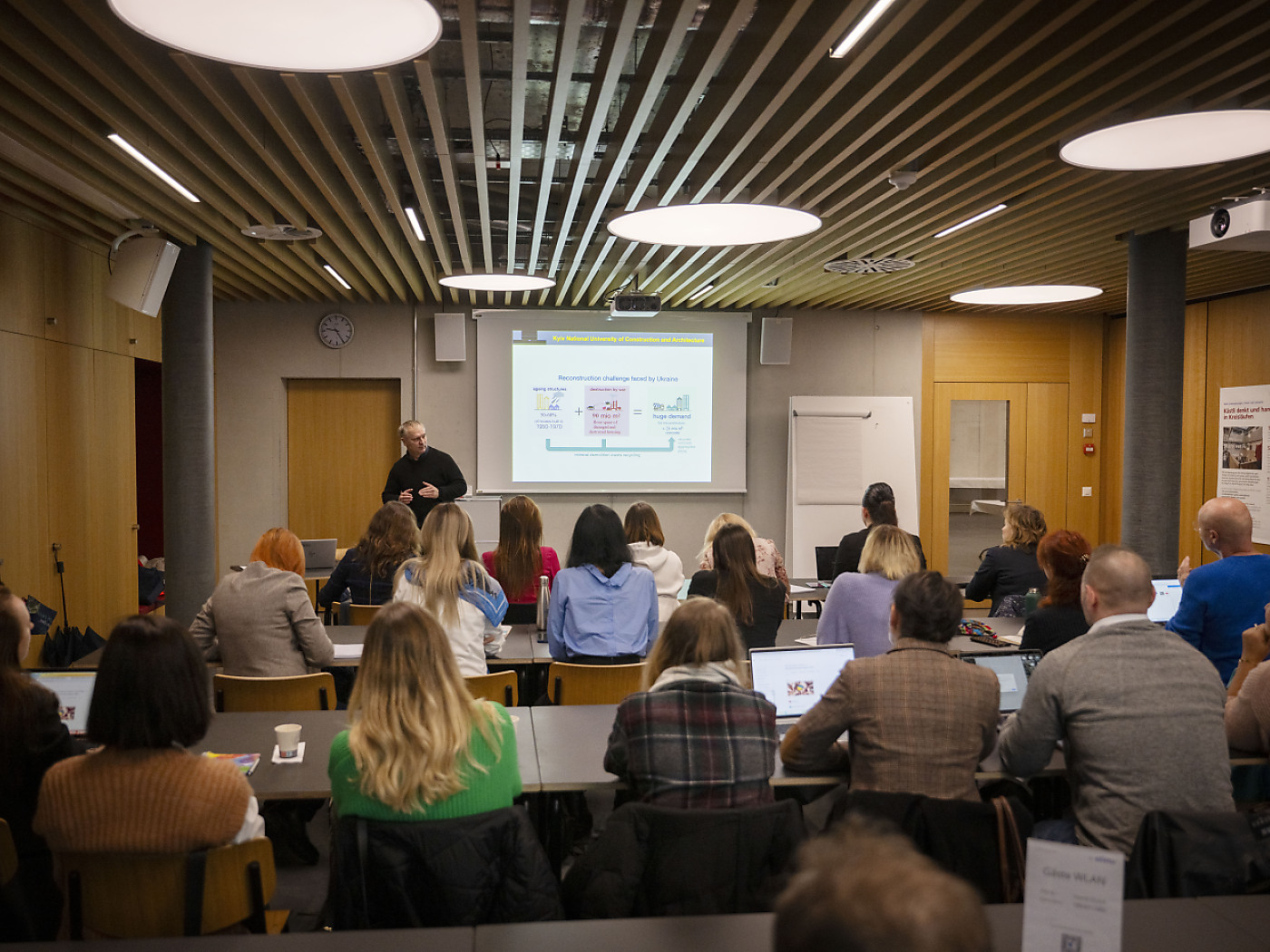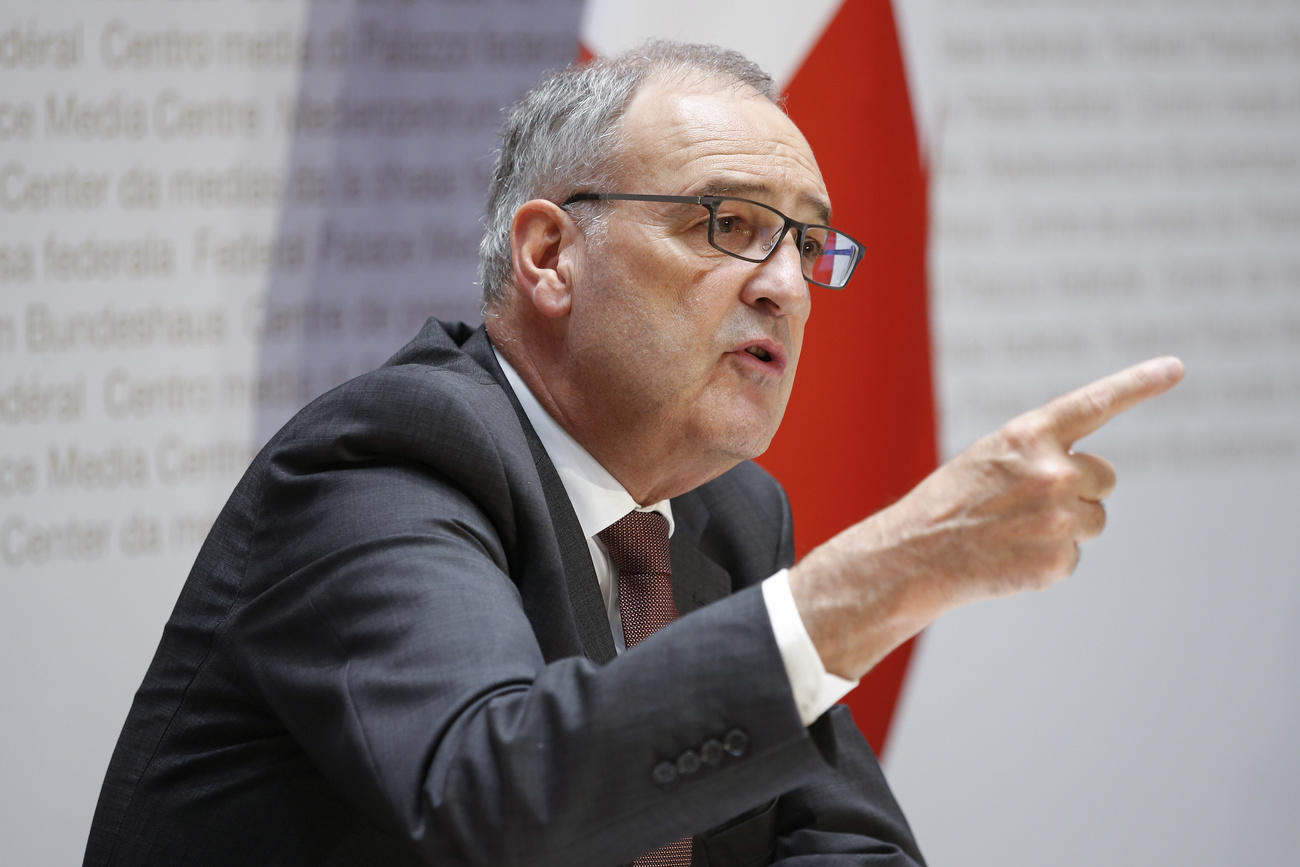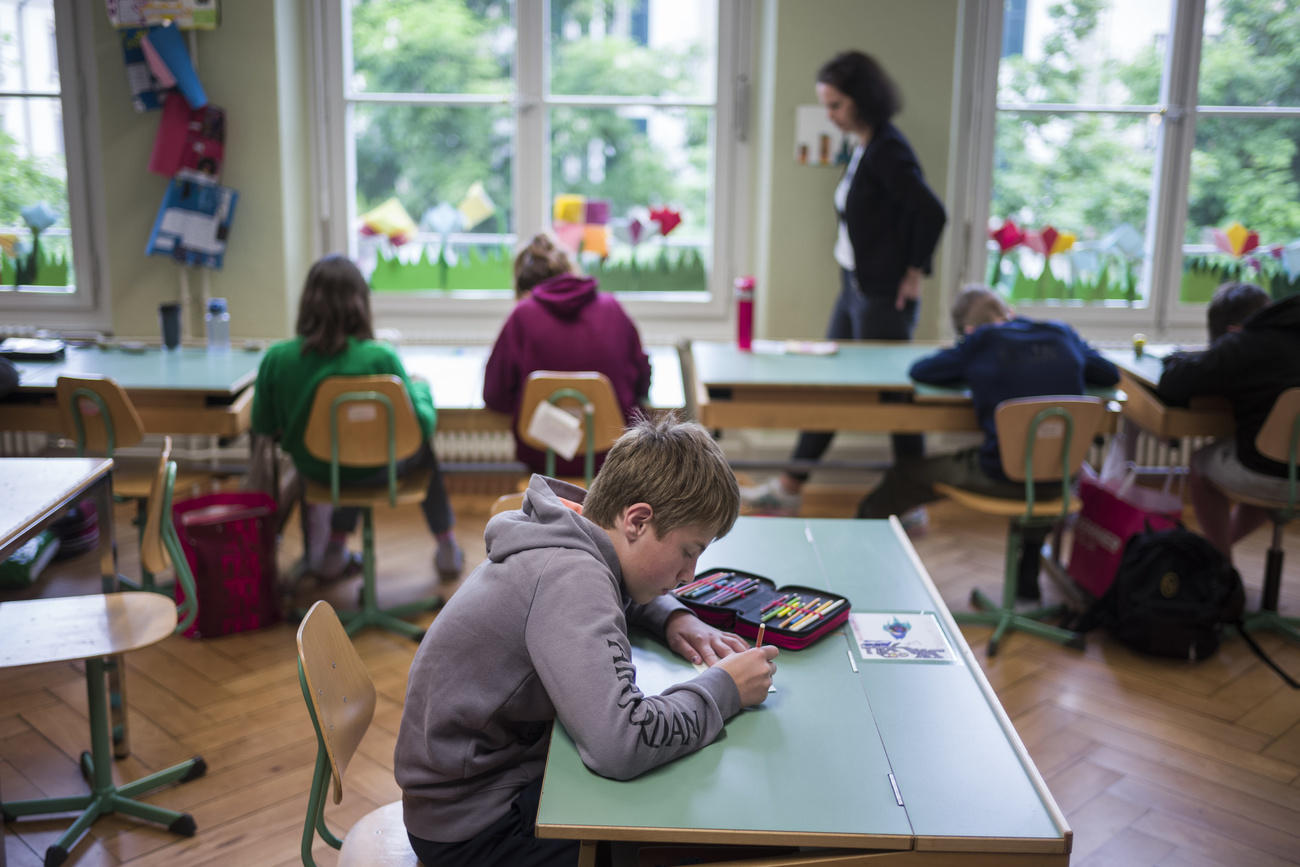Second Swiss pandemic wave ‘could be more deadly’

Researchers have used a mathematical model to calculate a possible second wave of the coronavirus pandemic in Switzerland. Their conclusion: the wave would develop more slowly than the first, but could see up to 5,000 extra deaths.
Should a second wave of the coronavirus come, it would proceed more slowly, meaning that the authorities would have more time to react and take measures than in the first wave, said Dirk MohrExternal link, a professor of Computational Modeling of Materials at the Federal Institute of Technology Zurich (ETH Zurich), who was involved in the research.
Society has learnt from its experience during the first wave and would act with greater caution than at the start of the pandemic, he told ETH Zurich news earlier this weekExternal link.
If the reproductive number should exceed 1 in the coming weeks and months (meaning that it would spread), it would almost certainly not reach the high levels of the first wave of infection in early March, he added.
+ Coronavirus: the latest numbers
It is therefore unlikely that a second wave would overload Swiss hospitals, the team concluded.
More deadly?
“This is good news, but it’s also deceptive,” Mohr said. “A second wave that rises very slowly, with a reproductive number just barely above 1, would be particularly insidious.”
According to one scenario mapped in the study, there could be an extra 5,000 deaths from Covid-19. This would be on top of the more than 1,600 already recorded.
The number of fatalities would however depend heavily on the wave’s extent and duration.
The mathematical model was specially developed to forecast the Covid-19 pandemic in Switzerland and uses figures published by the Swiss cantons. The researchers have posted their model and calculations on the medRxiv platformExternal link (but their publication has yet to go through the usual peer-reviewing process).
Age factor
The researchers believe that their model calculations are the first ones to factor in Swiss demographics and age-related contact patterns in high detail, the news statement said.
This meant they could calculate the reproductive number from the first wave for each age group. They found that 10- to 20-year-olds were heavily involved in spreading the virus and that 35- to 45-year-olds also had a higher-than-average contribution. By contrast, the elderly contributed far less on average to the spread.
Protection measures: useful
The research shows that all measures to lower transmission likelihood of would reduce the number of deaths. This especially applies to the workforce and to the 10-20 year-olds, it concluded.
If the likelihood of transmission in schools is halved through social distancing and hygiene measures, “the expected number of additional fatalities across the entire population would drop from 5,000 to below 1,000”, the study found.
Opinions are mixed over a possible second wave. On Thursday an expert at the Swiss National Covid-19 Science Taskforce said he thought there would be no big second wave, while the Federal Office of Public Health has said that while the infection trend was currently downwards, they would be observing the situation for any change in autumn.

More
Coronavirus: the situation in Switzerland

In compliance with the JTI standards
More: SWI swissinfo.ch certified by the Journalism Trust Initiative






















You can find an overview of ongoing debates with our journalists here . Please join us!
If you want to start a conversation about a topic raised in this article or want to report factual errors, email us at english@swissinfo.ch.